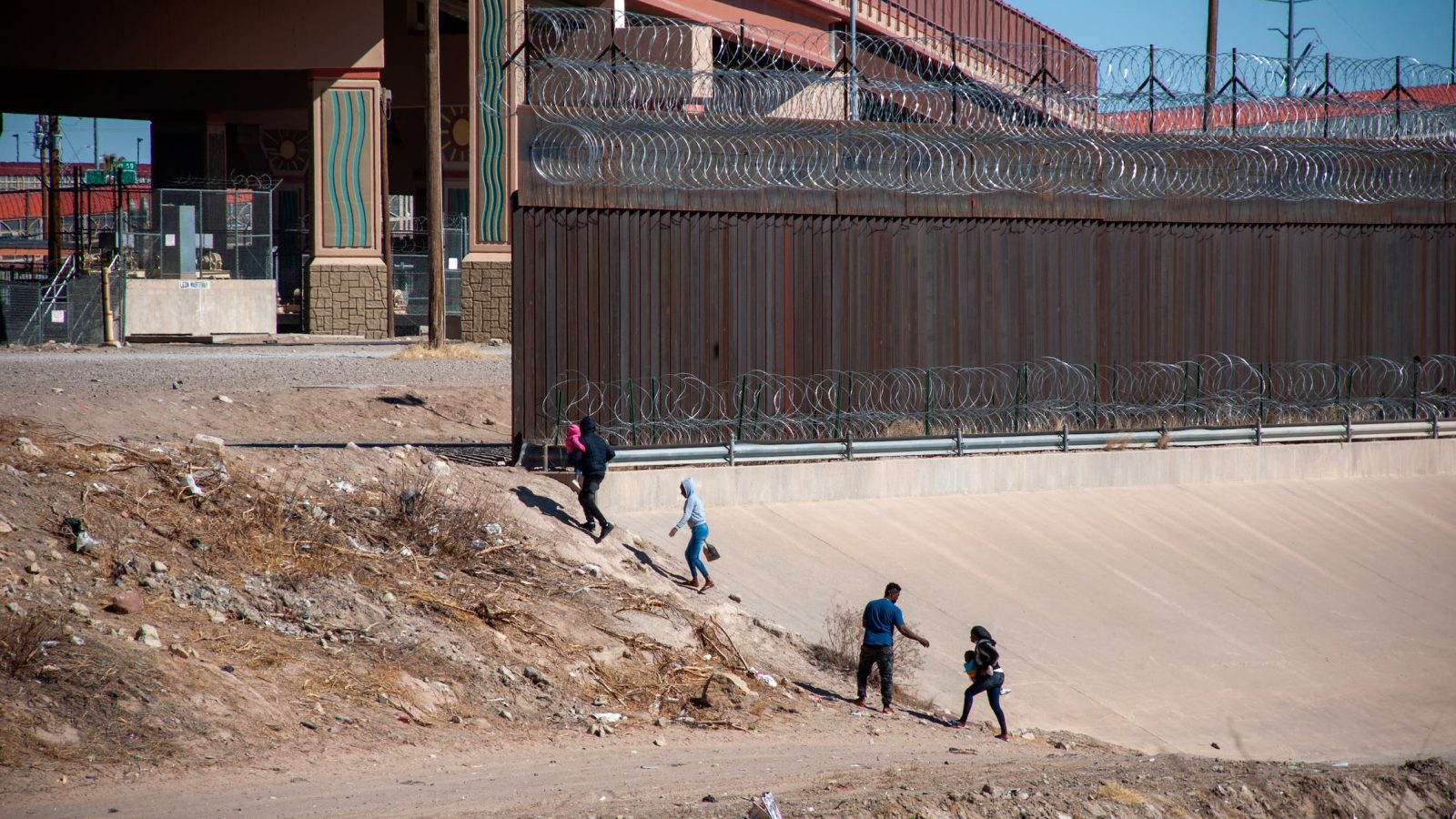A U.S. appeals court has temporarily paused a federal judge’s ruling to block a Texas law that allows police to arrest individuals suspected of unlawfully crossing the Texas-Mexico border.
U.S. District Judge David Ezra last week issued a preliminary injunction to prevent enforcement until the courts play out.
Federal Judge Blocks Texas Law That Allows Police To Arrest Illegal Migrants, Abbott Will Appeal
On Saturday, the 5th U.S. Circuit Court of Appeals reversed the decision.
The appeals court paused its order for seven days to give the federal government time to appeal to the U.S. Supreme Court.
“If the higher court doesn’t intervene, the new law could go into effect on Saturday as the legal battle continues,” The Texas Tribune noted.
“Federal appeals court allows Texas immigration law to take effect. Law enforcement officers in Texas are now authorized to arrest & jail any illegal immigrants crossing the border,” Greg Abbott said.
“Obviously this is the case unless the Supreme Court intervenes by March 9,” he added.
Obviously this is the case unless the Supreme Court intervenes by March 9.
— Greg Abbott (@GregAbbott_TX) March 4, 2024
The Texas Tribune reports:
The appeals court also said that it will schedule oral arguments on its next available date. As of Monday, that date hasn’t been announced.
The 5th Circuit ruling came a day after U.S. District Judge David Ezra in Austin blocked Senate Bill 4 from going into effect, saying the law “threatens the fundamental notion that the United States must regulate immigration with one voice.”
Gov. Greg Abbott signed SB 4 in December, marking Texas’ latest attempt to try to deter people from crossing the Rio Grande after several years of historic numbers of migrants arriving at the Texas-Mexico border.
SB 4 seeks to make illegally crossing the border a Class B misdemeanor, carrying a punishment of up to six months in jail. Repeat offenders could face a second-degree felony with a punishment of two to 20 years in prison.
The law also requires state judges to order migrants returned to Mexico if they are convicted; local law enforcement would be responsible for transporting migrants to the border. A judge could drop the charges if a migrant agrees to return to Mexico voluntarily.
HUGE BREAKING NEWS.🚨🚨
“Law enforcement officers in Texas are now authorized to arrest & jail any illegal immigrants crossing the border…"
Federal Appeals Court Allows Texas Law to Take Effect, Illegal Migrants Will Now Be Arrested https://t.co/QUEaNU3sDq
— Kyle Becker (@kylenabecker) March 4, 2024
“5th Circuit Court of Appeals has granted a temporary stay and WILL ALLOW Texas’ new immigration law SB4 to take effect on March 9 if SCOTUS doesn’t intervene. SB4 allows Texas authorities to arrest and detain any illegals crossing the border,” Charlie Kirk commented.
🚨BOOM! 5th Circuit Court of Appeals has granted a temporary stay and WILL ALLOW Texas' new immigration law SB4 to take effect on March 9 if SCOTUS doesn't intervene.
SB4 allows Texas authorities to arrest and detain any illegals crossing the border.https://t.co/Ry78GISYEa
— Charlie Kirk (@charliekirk11) March 4, 2024
SB 4 relates to “prohibitions on the illegal entry into or illegal presence in this state by a person who is an alien, the enforcement of those prohibitions and certain related orders, including immunity from liability and indemnification for enforcement actions, and authorizing or requiring under certain circumstances the removal of persons who violate those prohibitions; creating criminal offenses.”
WATCH:
Federal Judge Blocks New Texas Law to Arrest Illegal Immigrants pic.twitter.com/ldcQBhtP2m
— The Epoch Times (@EpochTimes) February 29, 2024
Per Reuters:
If the Supreme Court does not reverse the 5th Circuit’s decision, SB4 would take effect pending Texas’ appeal of last week’s decision by U.S. District Judge David Ezra in Austin.
In his ruling, Ezra had said the Biden administration is likely to prevail in its legal challenge, citing a 2012 U.S. Supreme Court ruling that struck down key provisions of a similar Arizona immigration law.
The Texas law would make it a state crime to illegally enter or re-enter Texas from a foreign country and would give state and local law enforcement the power to arrest and prosecute violators. It also would allow state judges to order that individuals leave the country, with prison sentences up to 20 years for those who refuse to comply.
SB4 is part of a larger effort by the Republican-led state to crack down on illegal border crossings. Paxton, Republican Governor Greg Abbott and other state officials have blamed Biden for a record increase in illegal migration and has said the state’s actions, including installing razor wire fencing at the border and a floating barrier in the Rio Grande river, were necessary because of federal inaction.
ADVERTISEMENT



Join the conversation!
Please share your thoughts about this article below. We value your opinions, and would love to see you add to the discussion!